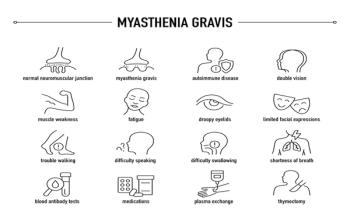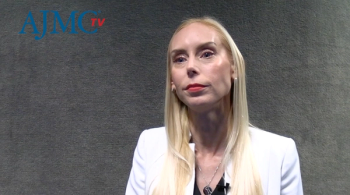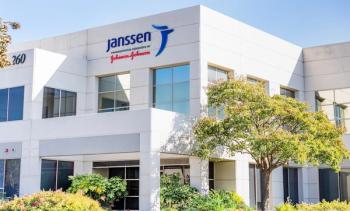
Federal policy changes, the push for fair pricing, and growing competition in the drug pipeline were major topics at this year’s meeting.

Federal policy changes, the push for fair pricing, and growing competition in the drug pipeline were major topics at this year’s meeting.

Payers cited high upfront costs, long-term uncertainty, and narrow coverage criteria as factors continuing to limit access and reimbursement innovation.

The Ensuring Community Access to Pharmacist Services (ECAPS) Act of 2025 (H.R. 3164) aims to ensure vital pharmacy services and access to care for underserved communities.

Research presented at the recent annual meeting of the Academy of Managed Care Pharmacy highlights outcomes among patients who have anti-acetylcholine receptor antibody-positive myasthenia gravis that include reduced exacerbations and need for immunoglobulin.

Elinzanetant significantly reduced the frequency and severity of vasomotor symptoms, known as hot flashes, compared with placebo across body mass index (BMI) and smoking status subgroups.

JC Scott, CEO and president of The Pharmaceutical Care Management Association, discusses current efforts in increasing biosimilar adoption and pharmacy benefit manager (PBM) reform.

Study participants treated with elinzanetant experienced significantly reduced hot flash frequency vs paroxetine, desvenlafaxine, and gabapentin in a new meta-analysis.

Laura Bobolts, PharmD, BCOP, senior vice president of clinical strategy and growth at OncoHealth, shares how health care leaders are advancing value-based care through improved data strategies, real-world evidence, and AI-driven efficiencies, without losing the human touch.

Adam Colborn, JD, associate vice president for congressional affairs, Academy of Managed Care Pharmacy, highlights key policy updates that are impacting managed care pharmacy.

A surge of generics, biosimilars, and innovative therapies is expected in 2025, addressing conditions from cancer to chronic diseases, as outlined at the Academy of Managed Care Pharmacy annual meeting.

Attendees of the Academy of Managed Care Pharmacy annual meeting share explain what draws them to the conference year after year.

Research presented at the 2025 Academy of Managed Care Pharmacy annual meeting analyzed real-world treatment outcomes for dermatologic conditions, specifically highlighting the efficacy of ruxolitinib cream for atopic dermatitis and the potential for phototherapy to delay costly biologic initiation.

Amid growing legislative pressures and industry debates, pharmacy benefit managers (PBMs) are exploring new strategies to enhance transparency, reduce patient costs, and navigate the evolving healthcare landscape.

Kimberly Westrich, MA, chief strategy officer at the National Pharmaceutical Council, discusses the importance of clearly defining the role of patient representatives on pharmacy-and-therapeutics and Medicaid committees.

Sam Peasah, PhD, MBA, RPh, director of High-Value Health Care Value-Based Pharmacy Initiatives at UPMC Health Plan, shares findings from a study on the cost impact of achieving 80% adherence to newer antidiabetic agents.

Laura Bobolts, PharmD, BCOP, senior vice president of clinical strategy and growth at OncoHealth, discusses strategies for managing costs of novel cellular and gene therapies in the oncology pipeline.

Rising biosimilar adoption, shifting market dynamics, and escalating supply chain vulnerabilities are driving change in managed care, creating both challenges and opportunities for stakeholders, as explored by speakers at the Academy of Managed Care Pharmacy’s annual meeting.

JC Scott, CEO and president of The Pharmaceutical Care Management Association, discusses the evolving role pharmacy benefit managers (PBMs) play in addressing payer, provider, and patient needs.

As health care costs continue to rise, artificial intelligence (AI)-driven solutions are emerging as a powerful tool for managing specialty drug spending and polypharmacy risks, as showcased in recent research presented at the Academy of Managed Care Pharmacy 2025 conference.

Neha Kashalikar, PharmD, director of strategic pharmacy consulting, MassHealth, shares key components that makes a value-based contract successful.

Adam Colborn, JD, associate vice president for congressional affairs, AMCP, discusses key regulatory factors that managed care professionals must consider when implementing artificial intelligence (AI) in practice.

Federal legislative and regulatory changes are reshaping pharmacy practice, with key challenges in government funding, pharmacy benefit manager reform, and health care policy shifts—topics explored by experts at the Academy of Managed Care Pharmacy's annual meeting.

The Inflation Reduction Act (IRA) may be restricting Medicare Part D formularies, increasing patient costs, and stifling pharmaceutical innovation, experts warned at the Academy of Managed Care Pharmacy 2025 annual meeting.

Janus kinase (JAK) inhibitors, including ruxolitinib cream and abrocitinib, demonstrate strong efficacy in atopic dermatitis (AD), offering viable alternatives to systemic therapies.

Susan Cantrell, CEO of the Academy of Managed Care Pharmacy, breaks down some of the key conference topics that will be discussed at this year's meeting.

Kimberly Westrich, MA, chief strategy officer at the National Pharmaceutical Council, highlights upcoming discussions on patient engagement, formulary management, and policy changes, including the Inflation Reduction Act.

As managed care pharmacy navigates rapid transformations in policies, high-cost drug strategies, and innovative therapies, the upcoming AMCP annual meeting will provide critical insights into legislative impacts, drug affordability, formulary design, and emerging treatment trends.

Among the most-read coverage for the annual meeting were presentations on the potential and costs of cell and gene therapies, the latest trends in the industry, and pharmacogenomic testing in mental health.

At the Academy of Managed Care Pharmacy (AMCP) 2024 annual meeting, multiple poster presentations concerned with health equity, data collection, glucagon-like peptide-1 agonists, and more were acknowledged for their originality, relevance, clarity, bias, and quality.

The FDA granted accelerated approval to talquetamab on August 9, 2023, as a treatment option for adult patients with relapsed/refractory multiple myeloma (RRMM) who have failed at least 4 prior lines of therapy.

259 Prospect Plains Rd, Bldg H
Cranbury, NJ 08512
© 2025 MJH Life Sciences®
All rights reserved.
